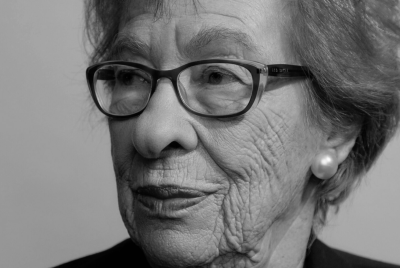Sara Sharif Death: Shocking New Evidence Emerges in Woking Girl's Case
Safeguarding review uncovers systemic failings behind Sara Sharif's death, sparking calls for urgent child protection reform

Newly released safeguarding findings have exposed a devastating series of systemic failures that left 10-year-old Sara Sharif unprotected in the months before her murder.
The schoolgirl was found dead at her home in Woking on 10 August 2023, sparking national outrage after her father, Urfan Sharif, and stepmother, Beinash Batool, fled to Pakistan.
While the pair were convicted in 2024, the latest review reveals a disturbing pattern of missed warnings, professional misjudgement and cultural hesitations that allowed years of abuse to go unchecked.
A Catalogue Of Missed Warnings
The review by the Surrey Safeguarding Children Partnership concluded that Sara's death followed at least 15 missed opportunities for intervention across social care, education and healthcare. Professionals repeatedly underestimated Urfan Sharif's violent history, despite more than a decade of documented domestic abuse allegations.
One of the most shocking errors occurred just 48 hours before Sara was killed, when a council worker visited an outdated address. This avoidable mistake prevented authorities from seeing the child or assessing her living conditions. The report concludes that systemic weaknesses left Sara effectively invisible to the very agencies meant to protect her.
'Groomed And Manipulated': How Professionals Were Misled

The review found that safeguarding professionals were 'groomed and manipulated' by Urfan Sharif, who successfully presented himself as a co-operative, concerned parent while concealing the true level of violence inside the home.
His persistent refusal to allow home-education visits — a major safeguarding red flag — was repeatedly overlooked.
Despite his long history of abusive behaviour, agencies allowed him to retain custody, leaving Sara trapped in an escalating cycle of violence.
Cultural Blind Spots Allowed Visible Injuries To Go Unchallenged
The report highlights that cultural sensitivities played a harmful role in the lack of intervention. Professionals admitted they hesitated to question bruising or injuries visible beneath Sara's hijab out of fear of offending — a hesitation the review states had catastrophic consequences.
Campaigners argue the findings expose a national issue: that cultural respect should never override a child's right to safety. The review stresses that safeguarding decisions must be 'culture-aware, not culture-blind'.
Brutality Behind Closed Doors
The Old Bailey trial revealed the horrific extent of Sara's abuse. Medical evidence showed at least 71 separate injuries, including more than 25 fractures, human bite marks, a traumatic brain injury and burns from a hot iron.
Sharif admitted he had been a 'cruel father', claiming he administered 'legal punishment' but insisting he did not intend to kill her.
Both he and Batool received life sentences — 40 years and 33 years minimum, respectively — but the safeguarding review concludes that systemic failings exacerbated the brutality she suffered.
The judge described her treatment as a campaign of cruelty, noting that the repeated violence robbed Sara of a normal childhood and left her trapped in a cycle of abuse until her death.
National Outcry And Renewed Demands For Reform
Sara's case has reignited public anger and triggered calls for urgent reform of child-protection systems. Advocacy groups say the review reveals a safeguarding framework weakened by poor communication, under-resourcing and fear of cultural missteps.
Campaigners are urging the government to mandate stronger training for all safeguarding professionals, emphasising that cultural awareness must never eclipse decisive action to protect children.
As the UK reflects on this tragedy, Sara's story serves as a stark reminder that child protection must always place the safety and well-being of the child at its core.
© Copyright IBTimes 2025. All rights reserved.




















